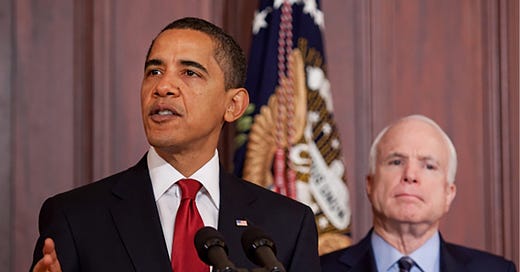McBama vs. America
Shows that the aims of John McCain and Barack Obama result from the same moral philosophy and are at odds with the American ideal of individual rights.
Keep reading with a 7-day free trial
Subscribe to The Objective Standard to keep reading this post and get 7 days of free access to the full post archives.




